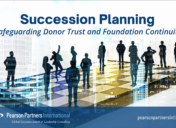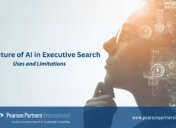Disruptive Business Models: Innovative Ideas Transforming Industries

L to R: Rob Palacios, Patricia Connolly, Joseph Jasser, Keith Pearson, John Terrell, Renee Arrington
In a technology-enabled, globally interconnected world that often feels like it is set on hyperdrive, business leaders must always think a few years ahead to anticipate and prepare for whatever is coming next. Proactively capitalizing on disruptive ideas—at exactly the right time—has become the key to beating the competition and earning the hearts and minds of customers.
To explore the topic of disruption, we invited four forward-thinking business leaders to discuss how their companies and clients are disrupting their industries and their competition at our first-quarter Spotlight SeriesSM breakfast on March 5, 2019. Our esteemed panelists included:
- Patricia Connolly, Ph.D., Chief Executive Officer and Founding Partner, SMC2
- Joseph Jasser, M.D., Chief Medical Officer and Executive Vice President of Complex Care Management, Signify Health
- John Terrell, M.B.A., Vice President of Commercial Development, Dallas/Fort Worth International Airport
- Rob Palacios, Managing Partner, inTelliDi Solutions
A disruptive influence can be anything from a consumer trend to a new idea, approach, service or product. Disruptors shake up industries by fundamentally changing the traditional ways that things are done, and they often have a ripple effect that extends outward and affects related processes and industries. Our panelists shared a few disruptive innovations that will soon have a widespread impact on industries as diverse as financial services, transportation, healthcare and outsourcing.
Flying cars. Within the next two years, DFW Airport will become one of the first in the country to introduce a fleet of flying cars, which are expected to become operational between 2023 and 2025. On one of the first such routes in the entire world, travelers will be able to fly from DFW Airport to Frisco in just 15 minutes. The battery-powered vehicles, maneuvered by multiple drones, will travel through geofenced corridors in the air at an elevation roughly one-third the height of airplanes. They will carry passengers to and from virtual takeoff and landing stations, similar to an airport.
Digital twinning. DFW Airport has a $37.1 billion economic impact on the region, more than half of which comes from cargo operations. As part of all airports contributing to a great database of technology, the airport is working on a project called Project Athena, supported by a $15 million U.S. government grant, which brings together innovators, technology professionals and “big data” gatherers to create a digital twin of the airport and its systems. This model will be used to analyze how airplanes move on the airfield, how people move from airplanes to their homes and businesses, how cargo is unloaded and moved onto trucks and when and how the cargo is delivered to its destination. Using this data, the airport will enable just-in-time pickup that eliminates waiting, and eventually, an autonomous operation that moves people and goods across the region and the United States more efficiently.
Blockchain. Because blockchain enables storage of data in a very secure manner, it will have widespread impact on multiple industries. Eventually, blockchain will enable consumers to create a secure digital identity that can be used for any number of transactions, from opening a bank account to securing a mortgage. At the same time, blockchain is enabling international financial transactions to occur much more quickly and affordably—in minutes rather than days. This gives even small businesses the ability to perform international transactions, giving them a competitive advantage. In the next several years, expect the multiple blockchain providers to begin to consolidate to service larger demand.
Healthcare. The healthcare industry is widely considered to be a late adopter when it comes to technology. But consumer expectations and demands in an Amazon-driven world are driving change. Healthcare businesses are seeking new ways to communicate with and engage patients and are making changes to meet patients where they want to be. A growing trend toward in-home care delivery is supported by virtual office visit technology and growing availability of in-home medical tests, including microdevices that take diagnostics to the patient. But the biggest disruption in healthcare will be predictive medicine, in which healthcare providers use data from AI and machine learning to provide proactive care that anticipates what a patient will need in the future. Within the next few years, patients will carry a lifetime of healthcare data with them to any appointment, speeding up the care process while giving providers a rich wealth of data that can be used at the point of care to improve outcomes. In the new value-driven healthcare model, insurance companies will become marginalized as risk transfers to provider groups and health systems.
Virtual teams. The last 20 years have seen the development of immense opportunities for technology workers. Many organizations that provide the services of tech workers are not based inside the United States. U.S.-based companies are shifting away from using these service providers and are instead building their own high-tech teams. This shift from outsourcing to insourcing is done by attracting top talent globally, yet allowing them to work remotely. Technology allows virtual teams to work together seamlessly, and can even help remote workers become part of company culture.
These are just a few of the disruptors expected to change the way businesses operate and people work and live. As with these types of changes that weren’t even on the horizon a generation ago, we can certainly expect more in the near future. Indeed, the only thing that is constant is change. Companies that accurately anticipate and capitalize on disruption will outplace their competition.
Pearson Partners Spotlight SeriesSM Breakfast
Save the date for our next Spotlight SeriesSM breakfast scheduled for June 4. Did you miss one of our Spotlight SeriesSM events? Check out summaries of past events.
Related Posts
- ← Searchlight Newsletter – Q1 2019
- Passion and Experience Bring a Perfect Match to Renowned Dallas Nonprofit →














